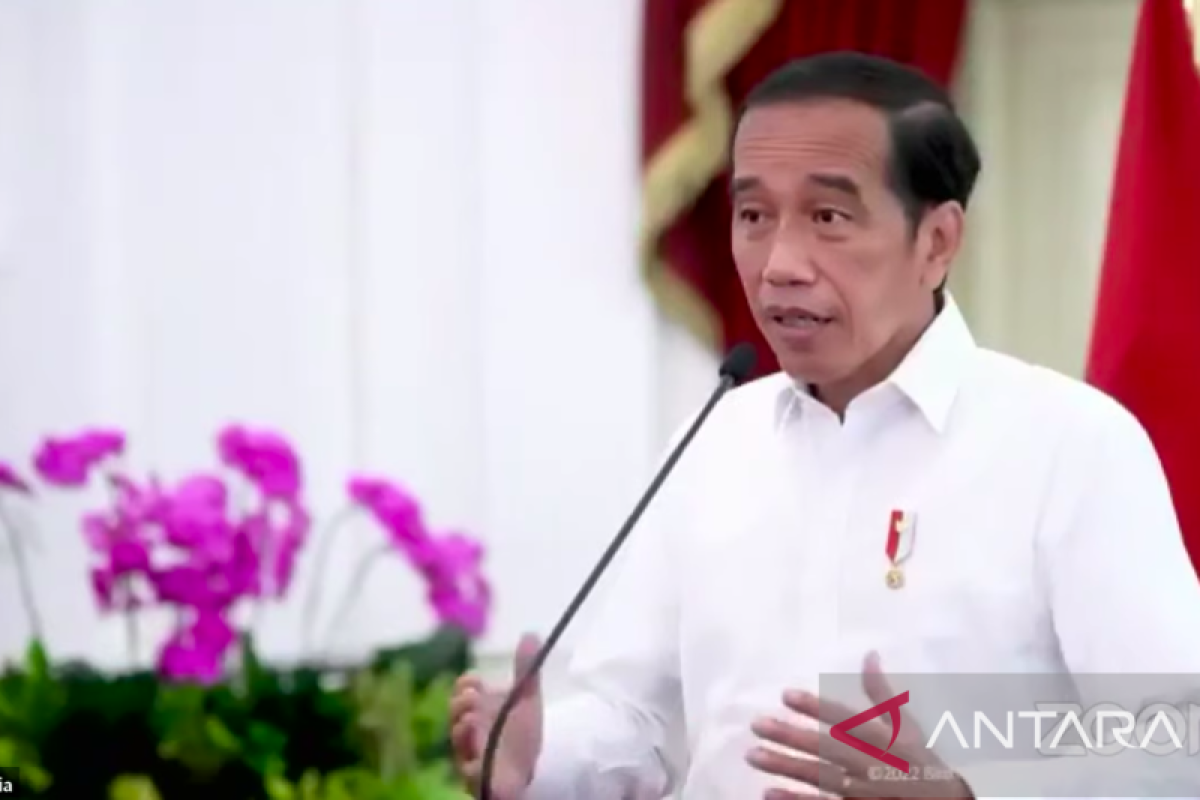Jakarta (ANTARA) - President Joko Widodo (Jokowi) has warned that the impact of climate change will increase the frequency, intensity, and duration of geohydrometeorological disasters may threaten Indonesia’s food resilience.
“The adaptability and the productivity of plants will increasingly decline, thereby threatening food resilience in our country,” he said in his address at the virtual commemoration of the 72nd World Meteorology Day, accessed from Jakarta on Wednesday.
The impact of climate change will increasingly do harm to Indonesia, which is an agrarian and maritime country, he added.
Extreme weather and climate phenomena will occur more frequently as a result of climate change, he said.
“The rising air temperature, the increasingly warm sea surface temperature, and the increasing sea level are endangering coastal areas and islets,” Jokowi added.
He then appealed to all stakeholders to pay serious attention to any information on weather and climate change from the Meteorology, Climatology, and Geophysics Agency (BMKG) and other relevant institutions.
The government, on its part, will need to prepare climate change mitigation and adaptation policies as soon as possible.
"Also prepare better steps to minimize the negative impact of climate change,” the President said.
The head of state further called for efforts to strengthen early warning systems for disasters by relying on artificial intelligence (AI), big data, assimilation methods, and high technology computerization.
Related news: Ministry develops climate-smart program to ensure food security
Fast and accurate meteorological, climatological, and geophysical data and information are badly needed to formulate measurable handling steps, he said.
"This is intended to build public awareness, resilience, and participation,” he remarked.
The President also expressed the hope that disaster education for the public will be continued.
He further asked his rank and file to ensure sustainable education, literacy, and advocacy for the public, and at the same, increase people’s resilience to adapt to and mitigate climate change.
“That way the public will be able to quickly respond to potential disaster risks,” he said.
Climate change-prone groups, including farmers and fishermen, should also receive disaster education so that they can adapt to the impact of climate change. This will allow them to continue to work productively and maintain food resilience, he said.
Related news: EARTH WIRE -- Food tax could tackle climate change and save half a million lives: Study










